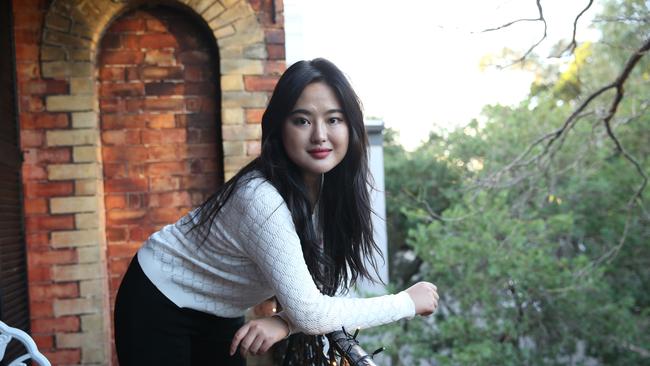Coronavirus: state push sees doors open to foreign students
Hundreds of international students are likely to be allowed into Australia in July following a state push, led by South Australia.

Hundreds of international students, blocked by the COVID-19 travel ban, are likely to be allowed into Australia in July following a state push, led by South Australia, to readmit overseas students to boost their economies.
The federal government is prepared to open up Department of Home Affairs quarantine facilities to house incoming students for a two-week isolation period after their arrival. The July arrivals would be a pilot for larger groups of students to arrive later in the year and early next year to restart the education export industry, which earned $40bn last year and supported 250,000 jobs.
Currently, 18 per cent of Australia’s nearly 700,000 international students are blocked from coming to Australia by the travel ban, although some are studying remotely from overseas. On Friday, Scott Morrison said admitting international students was in “step three” of the national cabinet’s plan to reopen the economy.
“We are open to that and we would be working with (education) institutions to see how that could be achieved. But it has to be done according to those strict quarantine restrictions,” he said.
The Prime Minister said there were a lot of steps to work through, including how the cost of quarantine would be met.
Before allowing international students in, the federal government wants full backing from state governments for the return process, which would be undertaken carefully and deliberately.
South Australian Premier Stephen Marshall has pushed hard for the readmission of overseas students, backed by NSW Premier Gladys Berejiklian, who is responsible for Australia’s largest student destination city, Sydney.
It is understood federal ministers have briefed international education industry representatives on how the student entry scheme could be implemented.
Phil Honeywood, chief executive of the International Education Association of Australia, said his sector had “taken heart” from Mr Morrison’s comments about international students.
“Clearly, any new cohort of students would only be approved based on our health officials’ advice,” he said. “In all likelihood, this would translate to (students coming from) a limited number of countries that were deemed to have contained the virus adequately to allay health and political concerns.”
Students arriving in July would be able to commence courses in the second semester at universities and independent higher education providers.
Abbey Shi, 22, a fourth-year law and political economics student at the University of Sydney, welcomed the news that some students from unspecified countries may be allowed to enter Australia in July. “I think it’s great when the pandemic is no longer a problem that we could have Chinese students returning to Australia,” said Ms Shi, who is from Shanghai.
“Students have built a community here. A lot of people have been living here for many years. It is almost like their normal life has been interrupted.”
One prerequisite for allowing the entry of international students will be the resumption of face-to-face classes at universities and, like all students, international students in Australia have been required to study from home since March.
Ms Shi said that although she was managing well with online courses, “I still prefer to be doing everything on campus”.
Universities Australia chief executive Catriona Jackson welcomed the plan to increase face-to-face teaching from step one onwards and said the return of students to campus would be carefully staged. “Small classes in areas that are very difficult to teach online, like labs, are likely to be an early focus,” Ms Jackson said.







To join the conversation, please log in. Don't have an account? Register
Join the conversation, you are commenting as Logout